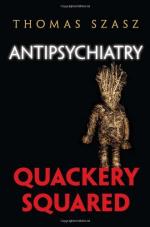|
This section contains 1,685 words (approx. 6 pages at 300 words per page) |

|
Overview
During the Middle Ages and through the Renaissance, physicians who were educated and trained in the scientific method—with a reliance on observation and experimentation—were few in number. Most of the population relied on a combination of alternative healers for their medical care—empirics (those outside the medical mainstream), barber-surgeons, and apothecaries. These healers learned their trade mostly through an apprenticeship, and used folklore, herbs, and guesswork to cure the sick. Disease was often attributed to supernatural causes, from evil spirits to punishment by God. Superstition and religious fervor dominated the philosophy of caring for the sick. In Europe the population embraced empirical healers along with the prevailing mysticism in desperate attempts to escape the great plagues of the late Middle Ages. By 1661, as London was in the grip of another plague, new explanations for disease...
|
This section contains 1,685 words (approx. 6 pages at 300 words per page) |

|


